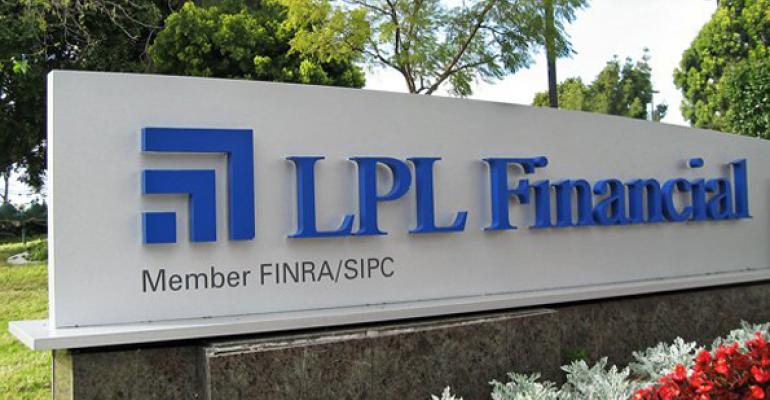LPL Financial will pay more than $6 million to settle FINRA charges that the firm fell short on complying with Regulation Best Interest when recommending trades in certain listed business development companies, among other claims.
The firm agreed to a $5.5 million fine and $651,374.51 in restitution, as well as a censure, while not admitting or denying the charges in the FINRA letter filed last week.
FINRA argued that LPL repeatedly failed to properly oversee whether certain transactions were suitable for clients, in a variety of ways. According to FINRA, between January 2012 and August 2019, LPL failed to supervise transactions its registered reps made on behalf of customers.
Particularly, the firm didn’t ensure reps reported their transactions on the daily trade blotter the firm used to find potential violations in sales practices; about 830,000 trades didn’t appear on the blotter, FINRA found.
“The firm did not ... generate exception reports from these transactions to identify potential sales practice violations, including potentially unsuitable transactions,” the report read.
Additionally, LPL didn’t collect necessary investment profile information (including clients’ ages, investment time horizons and liquidity requirements) that would help determine whether the trades were suitable. The trades in question include potential short-term trades of class A mutual fund shares, switches between certain products (for example, between a mutual fund and unit investment trust), and purchases of certain class B and C mutual fund shares.
FINRA also allegedly found LPL sent letters to about 11,300 customers between February 2016 and June 2020 that misstated the sales charges from switching between different securities. In the case of about 9,800 of these letters, LPL falsely claimed that switches between UITs and certain mutual funds had zero sales charges, according to FINRA.
The self-regulatory organization detailed how LPL allegedly broke FINRA rules as well as rules modeled on the SEC’s Reg BI Care obligations when overseeing the listed BDC transactions.
Some BDCs invest in the debt and equity of small and medium-sized companies without quick access to capital markets or other traditional modes of financing. BDCs carry a number of risks, including the exposure to investments “related below investment grade,” portfolios that are difficult to value, illiquid investments and fee structures with high operating fees and expenses, according to the regulator.
But between May 2017 and Nov. 2022, LPL didn’t design its supervisory system to make sure Listed BDC recommendations from reps complied with the necessary rules. Particularly, LPL relied on a particular electronic tool to generate alerts for supervisors that would flag recommendations with high concentration levels that might be unsuitable.
“However, this tool did not reasonably alert supervisors when LPL registered representatives made recommendations of potentially over-concentrated investments in listed BDCs to customers with low and moderate risk tolerance,” the letter read.
This left LPL supervisors in the dark when 16 such customers became over-concentrated in certain BDCs, and suffered nearly $74,000 in losses. In some cases, the clients’ investments in the BDCs “exceeded half of their household assets,” according to FINRA.
In a statement, an LPL spokesperson said the firm was “pleased” to have resolved the charges.
“LPL takes its compliance obligations seriously and fully cooperated with the FINRA Investigation, including self-reporting certain identified issues,” they said.





